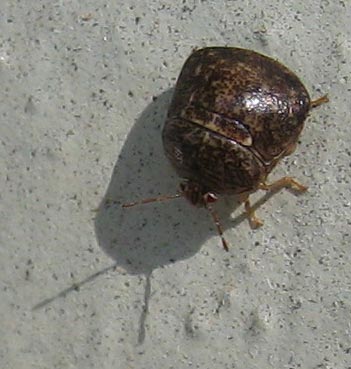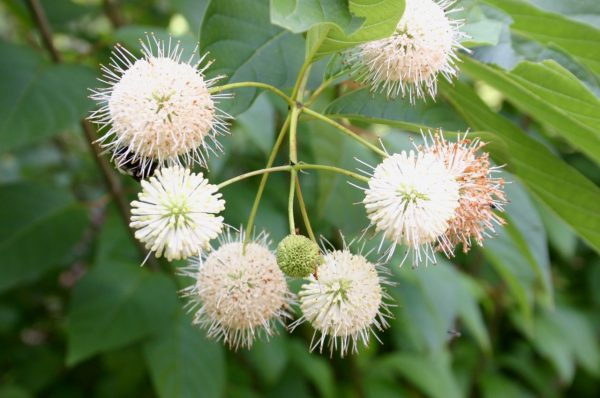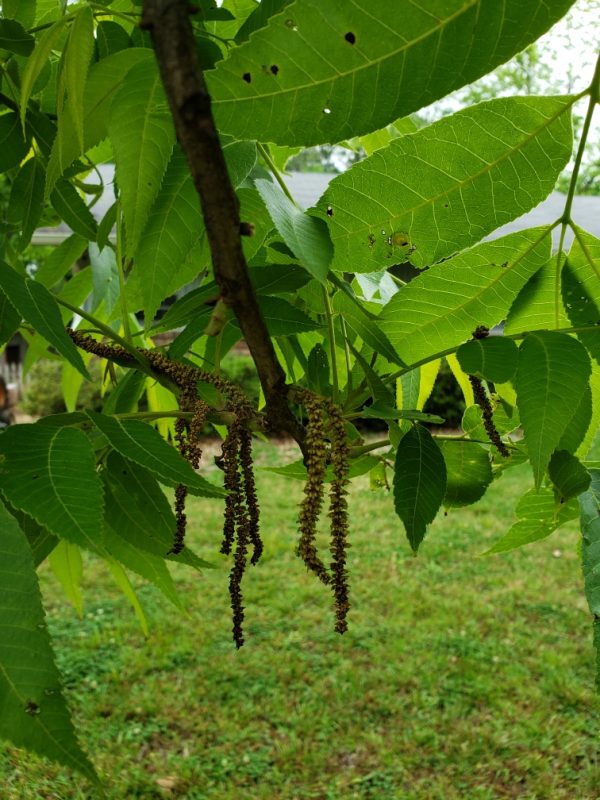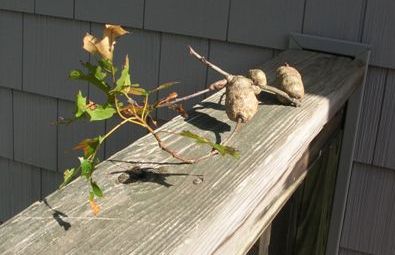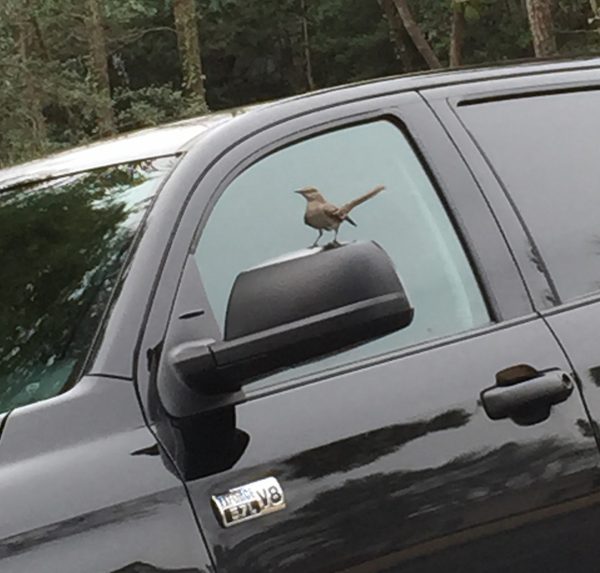Mosquito Control – Advice from the Experts
When it comes to mosquito control, over-the-fence advice is not good enough. Even though Uncle Mardy chewed garlic every day and never was bitten by mosquitoes, that doesn’t mean YOU would have the same results. (And don’t forget, Uncle Mardy died a bachelor!)
Experts were consulted for this article from the Atlanta Journal Constitution and not a single one had garlic on his breath.
COVER STORY: The goods: What works, what doesn’t
Here’s what some experts have to say about the various kinds of mosquito-control products on the market:
Deborah Geering – For the Journal-Constitution
Thursday, August 1, 2002
THE EXPERTS
Mark Brown, associate entomology professor, University of Georgia
John Day, a professor of medical entomology at the University of Florida
Elmer Gray, research coordinator/public health entomologist, University of Georgia
Rosmarie Kelly, medical entomologist, state division of public health
Cheryl Turner, Richmond County environmental health specialist, Augusta
THE PRODUCTS
DEET
Day: “In terms of single-application protection — that is the amount of time you can get from a single application — there’s nothing that beats DEET.” Also, because the product has been around so long, manufacturers have improved on the fragrance and feel. “I remember the DEET products from the ’50s, and they were awful. Now the formulations are really nice.”
Gray: “DEET is the most effective repellent on the market to date and is the standard [against which] all others are compared. Children [up to age 5] should use products containing 10 percent active ingredient or less and an adult should apply the repellent to the child.”
PERMETHRIN
Insecticide/repellent for clothing.
Gray: “Permethrin is a relatively nontoxic pesticide that is only approved for use on clothing as a repellent. The most complete repellent combination would be to use permethrin on one’s clothing and DEET on one’s skin.”
Kelly: “It should only be used on clothing. Generally it lasts a couple of weeks and should last through washings. It also repels ticks.”
BOTANICALS
Repellents for the skin, including plant oils such as citronella, catnip, eucalyptus, peppermint, lemon grass.
Gray: “Botanical repellent formulas have shown some effectiveness, but are not typically as effective as DEET and need to be reapplied much more often. Since West Nile virus has been found throughout the state and especially in the Atlanta area, I’d recommend using the best products available.”
Day: “Oil of eucalyptus has only become available in this country in the past year. Of all the plant-based products, oil of eucalyptus seems to hold the most promise in terms of reasonable protection times with a single application.”
The problem with all botanical products is that in effective concentrations, they can be irritating to the skin.
“They are natural products, but that doesn’t mean they’re not toxic. And some of them are really toxic. One of the best stories is oil of pennyroyal. There was a thought at one time that it would be an excellent flea treatment for dogs. They found that when they had a high enough concentration of oil of pennyroyal to kill the fleas, the product killed the dog.”
MOSQUITO TRAPS
American Mosquito Control Association: “These devices [most of which, like humans, emit carbon dioxide] will, indeed, trap and kill measurable numbers of mosquitoes. But depending upon their placement, wind direction and trapping efficiency, traps may actually draw more mosquitoes into your area than they can possibly catch. Thus, the homeowner must still use repellents and practice source reduction methods.”
Brown: “All of the devices like the Mosquito Magnet and Sonic Net are relatively expensive to run and maintain but in effect are attracting mosquitoes to the consumer’s yard. Sure, some of the mosquitoes are trapped in the device, but how many veered away to a more desirable human?”
Day: “I think the bottom line with these traps for the homeowner is that if they have a problem in their yard that is originating in their yard . . . in that situation, these traps probably work very well. For relatively low mosquito populations, I think the traps give you some relief. For the high mosquito populations, I don’t think you see that much difference.”
FOGGERS
Turner: “ULV [ultra low volume] insecticide is probably the best way to kill adult mosquitoes, but the problem there is it has to hit the mosquito. It is an effective thing if it hits them.”
Gray: “If you’re having company over at 7, and you fog at 6, you’re going to take care of most of the mosquitoes. But tomorrow night, if you haven’t gotten rid of the buckets in your yard or your neighbor’s yard, they’re going to be back.”
LARVICIDES
Larvicides such as mosquito dunks are used in situations where water cannot be eliminated, such as ponds and birdbaths.
Gray: “It’s a bacteria. It’s very specific. It doesn’t hurt the fish; it doesn’t hurt other aquatic insects. It’s nontoxic to mammals. It’s one of the most classic cases of biological control where it doesn’t affect other species.”
Kelly: Bti [the bacterium Bacillus thuringiensis var. israelensis] is a very nice product. They’re good for homeowners because they can put them out and you don’t have to worry about killing other insects; you don’t have to worry about killing birds.”
CITRONELLA CANDLES OR PERMETHRIN MOSQUITO COILS.
Gray: “Citronella candles have demonstrated some repellent effectiveness, but only in areas with limited air movement. People should not think that one citronella candle burning on their patio with any type of breeze will protect them from mosquitoes.”
Day: “Usually what happens in these products is the chemical is released from the candle in a downwind protection. It’s a relatively small area that’s protected. Usually, mosquitoes are coming in from a lot of different directions. . . . [But] they seem to work really well in a semi-enclosed area.”
Kelly: “Whether they have any effect any greater than any other smoke, probably not. You sit next to a smoky campfire, you don’t get bitten by mosquitoes either.”
REPELLENT-IMPREGNATED WRISTBANDS.
Day: “Even though they’re DEET, they don’t work at all. The mosquitoes would land all around them and feed all around them.”
ULTRASONIC REPELLERS
Worn on the body, these products claim to emit sounds that simulate mosquito predators such as bats or damselflies.
Gray: “Ultrasonic repellers have not been shown to be effective in significantly reducing or repelling mosquitoes.”
Day: “The advertising is that they scare the mosquitoes away. And we’ve never tested one that works. Mosquitoes are attracted by carbon dioxide, and there’s nothing that’s going to scare them away . . . short of a personal repellent.”
Turner: “Give me a break.”
ZAPPERS
Kelly: “Bug zappers do not work. They kill beneficial insects. I wouldn’t have one in my yard.”
Turner: “If you want to attract mosquitoes to your yard, that’s a good way to do it. They do kill a lot of other insects, more than mosquitoes.”
Citrosa plants
Gray: “Citrosa plants are not effective and studies have shown that mosquitoes will even land on the plants themselves. Buyer, beware!”
Kelly: “The evidence I’ve seen suggests they don’t work.”
FANS
Gray: “Fans will provide temporary relief as long as you stay in front of the fan.”
Brown: “A fan blowing through an area where folks are sitting is a fine control measure.”
CLOTHING
Gray: “Bug jackets, head nets and bed nets are used throughout the world and are apparently effective in reducing mosquito bites. Bed nets are instrumental in reducing malaria transmission in many parts of Africa and likely throughout the world.”
Kelly: “We always tell people to wear long-sleeve clothing and long pants when out in mosquito populations. Things like bug netting, they certainly work. . . . Probably screen doors have done more to prevent mosquito-borne illness in the United States than anything else.”




